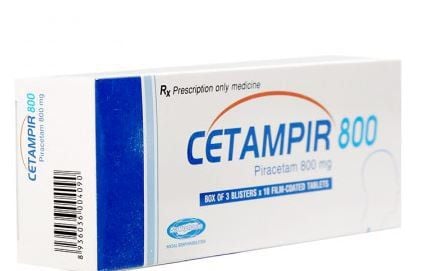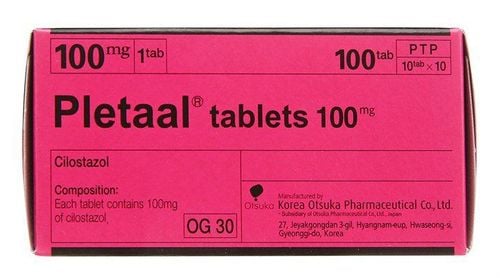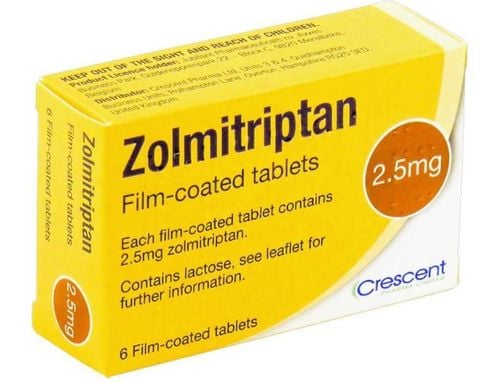This is an automatically translated article.
Stroke is a major cause of disability in adults and a growing threat to public health. One of the causes of a stroke is a sudden increase in blood pressure or chronic uncontrolled high blood pressure. Therefore, understanding the following mechanisms of high blood pressure causing stroke will contribute to improving disease and overall prognosis.
1. Changes in the structure of cerebral blood vessels due to high blood pressure
High blood pressure always causes profound effects on the structure of blood vessels in the brain. All mechanical, neurological and humoral factors have been shown to contribute to changes in the composition and structure of the cerebrovascular wall. Accordingly, hypertension promotes the growth of atherosclerotic plaques on cerebral arteries and arterioles, which can lead to arterial occlusion and ischemic injury. In addition, hypertension causes steatosis in the deep perforating arteries and arterioles that supply white matter, leading to white matter microinfarction or cerebral hemorrhage. In addition, hypertension causes enlargement and regeneration of smooth muscle, the layer of muscle cells in the systemic and cerebral arteries, which has the function of reducing stress on the vessel wall and protecting the microvasculature. downstream. When blood pressure is chronically high, smooth muscle cells become enlarged, hyperplastic, or rearranged and grow inward, encroaching on the lumen of the artery, leading to narrowing of the lumen. At the same time, hypertension also leads to vascular hardening, which leads to increased pulse pressure, which becomes a predictor of stroke.
2. Changes in cerebral blood flow in hypertension
Recent studies have shown that cerebral blood flow is reduced in areas of the brain that are subjected to excessively high perfusion pressure for a long time, often causing lesions in the white matter.
However, an enhancement of cerebral blood flow may also be encountered as a consequence of hypertension with the mechanism by which brain activation is reduced in hypertensive patients.
Thus, hypertension alters the endothelium-dependent relaxation of cerebral blood vessels. At the same time, this change has a secondary cause after endothelial dysfunction. At this time, endothelial dysfunction also leads to excessive NO production, which can increase cerebral vascular permeability, leading to cerebral edema.
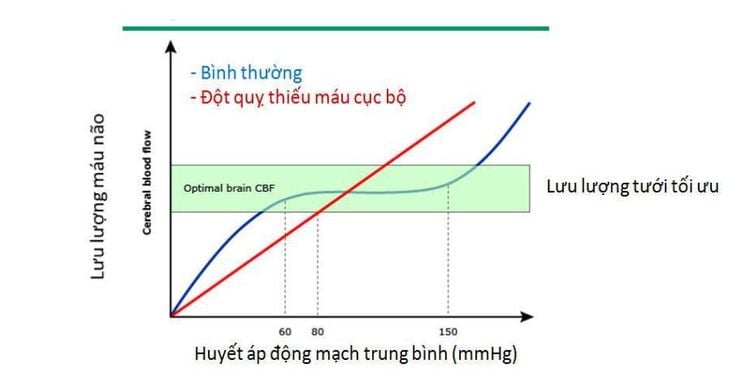
Cơ chế tự điều hòa lưu lượng máu não
3. Effects of oxidative stress on cerebral blood vessels due to hypertension
Oxidative stress is a condition that exceeds the capacity of the antioxidant defense system. Accordingly, the effects of persistent oxidative stress can deplete antioxidant molecules, further reducing antioxidant activity. Accordingly, there is convincing evidence that oxidative stress plays an important role in the pathogenesis of hypertension and its long-term stroke complication.
In addition, hypertension itself can also lead to oxidative stress in the cerebrovascular system. From there, changes in the structure and function of cerebral blood vessels will progress continuously caused by hypertension.
4. Inflammatory response in cerebral blood vessels in hypertension
Inflammation is an important process that leads to changes in blood vessels, destroys the integrity of the vessel wall, and is the mechanism of many common pathologies in a wide range of vascular diseases, including atherosclerosis and cerebral aneurysm.
Indeed, studies have shown that biomarkers of inflammation can predict primary ischemic stroke risk. Specifically, inflammatory markers such as C-reactive protein (CRP), interleukin-6 (IL-6), leukocyte elastase, lipoprotein (a), intercellular adhesion molecule-1 (ICAM-1) and E- Selectin at a higher threshold was associated with an increased risk of stroke compared with those with these parameters within the normal range.
In addition, inflammation has been identified as a “new” risk factor for stroke. There is increasing evidence supporting a role of vascular inflammation in the pathogenesis of stroke-induced hypertension.
Furthermore, elevated oxidative stress also stimulates inflammatory responses in cerebral blood vessels, as a result of the production of chemokines, cytokines and adhesion molecules, and proliferation of lymphocytes. In contrast, the inflammatory response also causes oxidative stress, which makes the relationship between these factors into a self-perpetuating vicious cycle that can easily cause severe consequences if no appropriate treatment measures are taken.
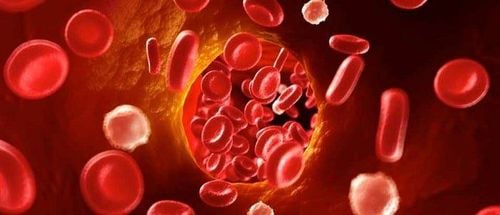
Phản ứng viêm tại mạch máu trở thành cơ chế của nhiều bệnh lý phổ biến
5. Regulatory dysfunction of arteries in hypertension
The regulatory function of the arteries is one of the most important physiological reflexes in the control mechanism of systemic blood pressure regulation. Accordingly, this defect has been considered an important determinant in many cardiovascular diseases.
As the regulatory function of the arteries declines, the vessel walls become susceptible to hardening and atherosclerosis and become less sensitive to any given changes in blood pressure. Since then, this factor contributes to a vicious cycle of hypertension and related complications, especially in the cerebral circulatory system.
In summary, stroke is a major public health concern and hypertension is one of the most important risk factors. Through analyzing the relationship between hypertension and stroke, explaining the mechanism of high blood pressure causing stroke will contribute to helping patients have a sense of initiative in building a healthy lifestyle, complying with control. blood pressure, leading to more effective stroke prevention.
Periodic health checkup is one of the ways of early recognition and prevention of disease, especially for patients with a history of stroke, from which a treatment plan can achieve optimal results. Currently, Vinmec International General Hospital has general health checkup packages suitable for each age, gender and individual needs of customers with a reasonable price policy, including:
Health checkup package diamond general health checkup package Vip general health checkup special health checkup package Comprehensive general health checkup package standard general health checkup The patient's examination results will be returned to your home. After receiving the results of the general health examination, if you detect diseases that require intensive examination and treatment, you can use services from other specialties right at the Hospital with quality treatment and services. outstanding customer service.
Please dial HOTLINE for more information or register for an appointment HERE. Download MyVinmec app to make appointments faster and to manage your bookings easily.





